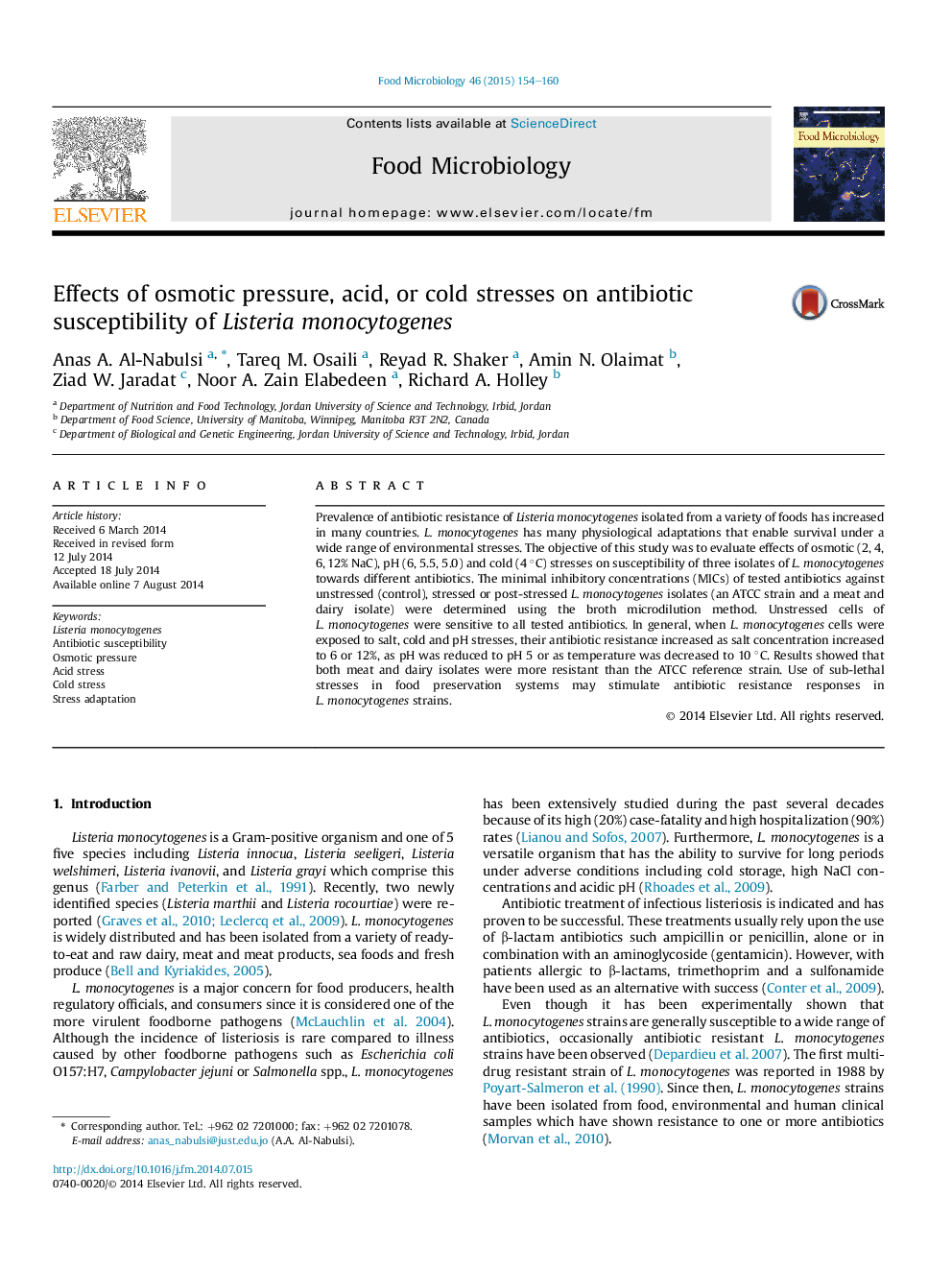| Article ID | Journal | Published Year | Pages | File Type |
|---|---|---|---|---|
| 6288532 | Food Microbiology | 2015 | 7 Pages |
Abstract
Prevalence of antibiotic resistance of Listeria monocytogenes isolated from a variety of foods has increased in many countries. L. monocytogenes has many physiological adaptations that enable survival under a wide range of environmental stresses. The objective of this study was to evaluate effects of osmotic (2, 4, 6, 12% NaC), pH (6, 5.5, 5.0) and cold (4 °C) stresses on susceptibility of three isolates of L. monocytogenes towards different antibiotics. The minimal inhibitory concentrations (MICs) of tested antibiotics against unstressed (control), stressed or post-stressed L. monocytogenes isolates (an ATCC strain and a meat and dairy isolate) were determined using the broth microdilution method. Unstressed cells of L. monocytogenes were sensitive to all tested antibiotics. In general, when L. monocytogenes cells were exposed to salt, cold and pH stresses, their antibiotic resistance increased as salt concentration increased to 6 or 12%, as pH was reduced to pH 5 or as temperature was decreased to 10 °C. Results showed that both meat and dairy isolates were more resistant than the ATCC reference strain. Use of sub-lethal stresses in food preservation systems may stimulate antibiotic resistance responses in L. monocytogenes strains.
Keywords
Related Topics
Life Sciences
Agricultural and Biological Sciences
Food Science
Authors
Anas A. Al-Nabulsi, Tareq M. Osaili, Reyad R. Shaker, Amin N. Olaimat, Ziad W. Jaradat, Noor A. Zain Elabedeen, Richard A. Holley,
